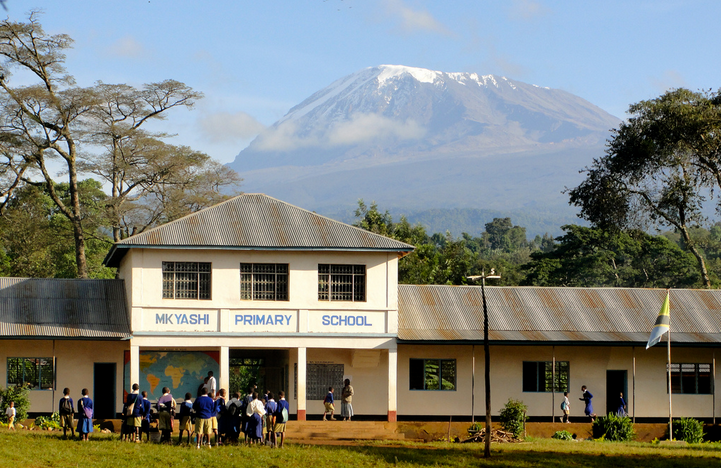Alum Sam Barns uses his service experience to create a new development project in Mkyashi, Tanzania. This summer, Rollins students will have the opportunity to interact with the community in a field study guided by Dr. Chong.
Narrowing down the continents to South America, Europe, Asia, Africa, and Australia, Rollins alumnus Sam Barns ‘11 ‘12MBA knew volunteering overseas was his summer calling; he was not picky about the destination. Along with fellow Crummer alum, Alli Crocker ‘12MBA, Barns applied to opening after opening and received a quick response from Volunteers of Kilimanjaro—a humanitarian tourism organization in Mkyashi, Tanzania.
Flash-forward four years later, Barns and Crocker translated that international service experience into the founding of an economic development organization, Tuko Pamoja Mkyashi (TPM). The Crummer graduates oversee TPM, Barns as Chief Prosperity Cultivator and Crocker as Vice President of Empowerment.
“I started TPM for two reasons. First, I wanted to keep in touch with the friends I made in Mkyashi in a meaningful way. Second, I saw a lot of untapped opportunity in the local economy and wanted to be a part of helping people take advantage of those opportunities,” Barns said.
Tuko Pamoja Mkyashi (TPM)—which means “We are together with Mkyashi” in Swahili—focuses on three projects designed for residents of Mkyashi and surrounding villages to improve their quality of life using their own physical and intellectual resources: organic gardening, entrepreneurial assistance, and capital projects.
This summer, Barns will partner with Dr. Dan Chong in a Rollins field study to Tanzania that will explore sustainable development and incorporate methods of personal development like yoga. Students will impact the Mkyashi community firsthand and partake in a once in a lifetime safari.
“Students will get the opportunity to help implement a community-run water program, build vegetable gardens with families, and help microloan recipients with their projects,” Barns said. “Students will be introduced to projects and then be in charge of prioritizing projects based on need, impact, and budget.”
According to mkyashi.org, “Instead of building hospitals, schools, and libraries for the village, TPM [enables] Mkyashi to initiate its own development projects.” While TPM is an economic development organization in theory, Barns has reservations about the term because it focuses “too much on monetary measures of success.”
As chief prosperity cultivator, Barns exerts his energy on two projects: helping families start organic vegetable gardens and helping local entrepreneurs start small businesses. TPM teamed up with Better Lives to train families on the best practices for organic gardening; each garden is capable of producing enough vegetables to feed six people each day. To aid entrepreneurs, the TPM team provides such services as setting up bank accounts to adjusting business plans. Barns’ fondest memories since founding TPM are watching families harvest their first vegetables and helping entrepreneurs successfully access capital to jump start their businesses.
“People are always skeptical of new ideas and cautiously optimistic at best that projects will really have a positive effect on their lives, ” Barns said. “It is a special moment when they start to believe their work is paying off and they’re on a path to improve their lives.”
This year, in addition to starting 25 new family gardens, Tuko Pamoja Mkyashi plans to implement a new community run water program to improve access to clean water for consumption, washing, and irrigation. If the trial is successful in Mkyashi, the program will extend to other parts of the community. For long-term goals, Barns highlighted possible expansion projects in microfinancing, voluntourism, and ecotourism.







Be First to Comment